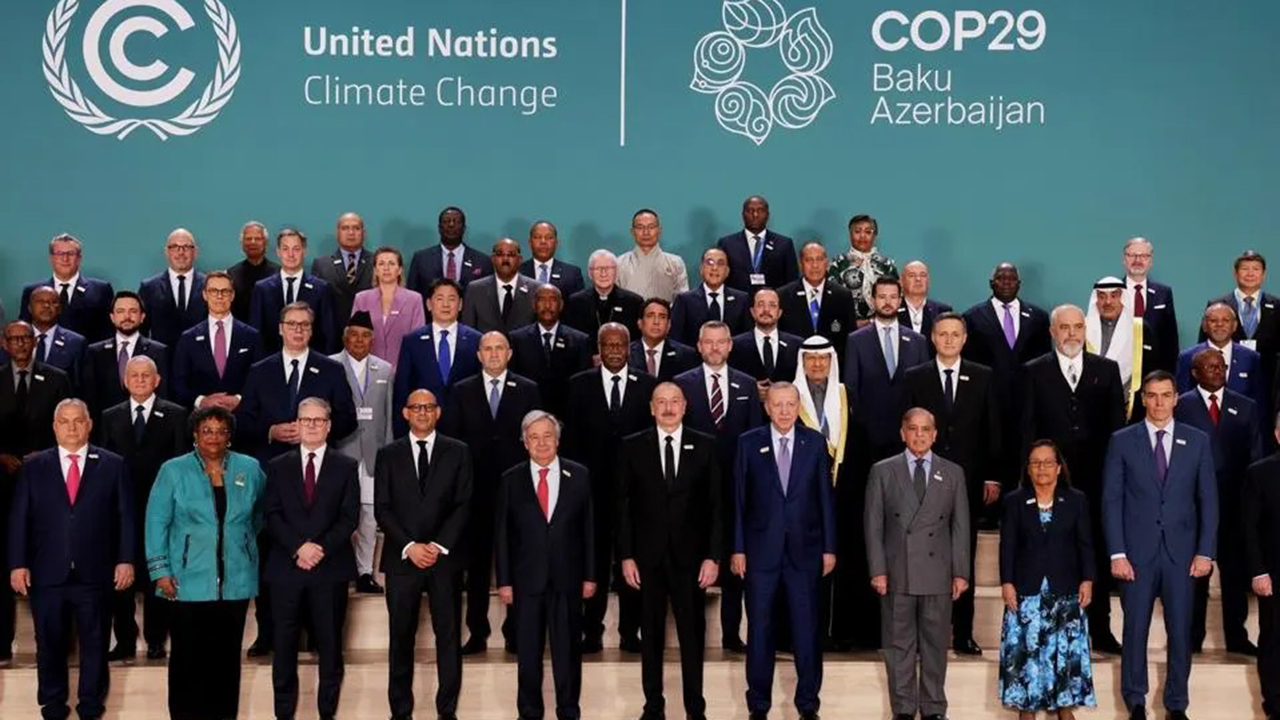
Generative Artificial Intelligence (AI) continues to transform virtually all aspects of human interactions with machines and robotics.This phenomenon spansaerospace, biopharmaceutics, customer service, cybersecurity, data processing, defence, geospatial systems, engineering and finance. It encompasses law, logistics, manufacturing,medicine, telecommunications and more.
Deployed ethically, it heralds humanity’s profound innovative capacity and the converse applies, when deployed destructively, although the latter could be justified on the grounds of overriding strategic national security interests!The simplest way of explaining AI is technology which empowers computers and machines to replicate human actions including learning, comprehension, problem-solving, decision-making, creativity and autonomy.
To enthusiasts, AI is probably the greatest innovation in modern times! To critics, it is yet another unnecessary invention which fractures human creativity, impairs intellectual originality, breaches data security, whilst enriching tech firms, and worst all, displaces human beings from real jobs. There are of course arguments and counter arguments either way, but the fact of the matter is that human development, scientific and technological advances, like AI, quite simply, cannot be reversed. AI, will displace approximately 23 per cent of current jobs globally, resulting in over 80 million job lossesby 2027, according to Statista’s forecasts.
However, it opens a vista of job opportunities in coding, cybersecurity, data analytics, programming, robotics, software testing et al, with the potential to create approximately 70 million jobs over the next five years. The intellectual and pragmatic challenge which AI heralds, is the corresponding opportunity which it concurrently affords:to adapt, reskill, and upskill, to meet the demands of a completely altered technology-based labour market in progressive nations. That debate will continue beyond the frontiers of this treatise.
Today’s focus however, is DeepSeek, the innovatively disruptive Chinese AI model, which has stimulated huge global interest. Hitherto, American tech firms in the Silicon Valley, exercised a defacto monopoly on AI development. Prominent firms in that top league include Anthropic, DeepMind and Nvidia, a leading supplier of AI hardware and software.
Back in 2023, Nvidia was the seventh publicly quoted American firm with a valuation exceeding $1 trillion given infinitely rising demand for data centre chips amidst the global AI boom. According to AI Business, in q2 2024, Nvidia’s market capitalisation exceeded $3.3 trillion.
Another U.S. firm, Open AI, created the ChatGPT model. Between 2021 and 2024 Open AI’s valuation increased 1021 per cent from $14 billion in 2021 to $157 billion in 2024. The model interacts in a conversational way, answers supplementary posers, admits its errors, self-corrects, challenges incorrect arguments and posers, whilst rejecting inappropriate questions.
It writes and debugs computer programmes; mimics motivational speakers, celebrities and prepares business pitches. It can create music, write poetry and even student “cheat sheet” essays to mention just some of its features! It cost over $100million.
To put this into some perspective, there are over three billion smart phones and mobile devices in use globally and the “smartness” of those gadgets are anchored on AI. Because you utilise AI data chips to access search engines like Google, navigational position systems, book flights, meals;make payments within and across geographical boundaries, unbounded by actual physical geographical boundaries; make conference calls and more.
When you really think about it, millions of dollars goes into AI investments and the tech firms behind these innovations exist primarily to make profitsand returns on investments for shareholders: perfectly reasonably too!
Yet, the economics of AI development cannot rationally be unhinged from the geopolitics of competitive rivalry amongst nations and the advent of economic nationalism – evident in the President Trump’s “America First” ideology.
Put differently, the United States and China are not only permanent veto wielding superpowers members on the UN Security Council competing for global pre-eminence; they are military rivals over contested domains regarding Taiwan, South China Sea, Chinese global influence; political rivals, in that they practice alternative political doctrines; they are also robust economic rivals.
According to International Monetary Fund 2024 forecasts, the United States GDP was $29,167 billion whilst China’s was $18,273 billion. Applying Purchasing Power Parity metrics, the Chinese economy was worth $37,072 billion whilst the United States was £29,167 billion.
Both countries arethe largest two global economies and their competitive contestability is real. The latter is partly exemplified by Executive Order (EO) 13959, signedby President Trump (as 45th President) on November 12, 2020 entitled “Addressing the Threat from Securities Investments That Finance Communist Chinese Companies.” The EO bans US retail andinstitutional investors from investing in securities of companies deemed “Communist Chinese Military Companies” by the U.S. Department of Defence.
Over 30 Chinese firms were adversely impacted by the EO, a material factor which resulted in the delisting of the firms by the New York Stock Exchange in March 2021. U.S. economic sanctions remain in place against China evidenced by President Trump’s imposition of a 10 per cent tariff on Chinese imports effective February 1, 2025.
Therefore, DeepSeek’s January 2025announcement that its AI model was developed at a fractional cost of circa $6 million,relative to the cost of Open AI’s ChatGPT, given its utilisation of a limited amount of high-tech chips generated huge consternation. The statement triggered the erosion of approximately $600 billion off Nvidia’s market valuation and political concern with President Trump calling it a “wake up call” for American firms.
Beyond that, it invokes far-reaching strategic consequences. First, DeepSeek has established itself as a definitive AI market disrupter. As such, Silicon Valley’s tech supremacy is notguaranteed ad infinitum. Second, DeepSeek exposes the limitations of sanctions and tariffs regimes as relatively blunt tools of coercive foreign policy. Third, DeepSeek sharpens market contestability in the tech space and creates a potentially huge market for China especially across the Global South and BRIC economies.
Fourth, it reinforces the unintended consequences of catalysing local creativity and self-reliance; stimulating greater demand for Chinese products and services; boosting the country’s GDP; and by extension, formidable economic leverage to compete with other economic adversaries and blocs like Taiwan, Japan, Canada, the European Union, and, especially, the United States.
Finally, it demystifies the conventional wisdom that a strong correlation exists between larger budgets and top-end AI products. Notwithstanding, DeepSeek’sclaims, they have to be bounded the fact that the firm is a private company. The inference being that its shares cannot be freely traded on the world’s leading stock exchange markets. That in turn, possesses a limitation as to what is independently verifiable given the Chinese Communist political model, with searching questions raised as to the true cost of developing DeepSeek. Plus, it risks exposing China’s DeepSeek to AI development isolationism if it proceeds on the basis of Chinese AI “exclusivity.”
Even so, the emerging policy question is whether Chinese AI development should cease against the backdrop of tough, and potentially tougher, United States economic sanctions and tariffs? Nature abhors a vacuum. So, on that criterion alone, the answer must be negative.
The issue then becomes one of strategic collaboration, fair trade practices, transparency and de-escalation of trade wars by the United States and China. Realpolitik, however, means the probability of that happening are pretty slim, at the moment, given American First doctrines, which by its very definition, is the converse of multilateralism.
Ending, the very fact that Generative AI models, like ChatGPT and DeepSeek, are anchored on deep learning models, which replicate cognitive human learning and decision-making processes; executed by classifying and encrypting the tapestry and nexus of vast data, and then utilising that analysis to understand human natural language requests; and respond with applicably relevant new content; suggests that it will remain a viable source of competitive advantage for leading firms.
Plus, it will be a market contestability flash point given the contested geopolitics and economic sanctions amongst major powers. On balance, organic AI development appears to have its work cut out, just as the World Trade Organisation (WTO) will mediate in emerging and increasingly volatile trade disputes.
Furthermore, generative AI raises practical and ethical questions for policy makers, regulators and law makers. If tech firms, on either side of the geopolitical divide, are profiting from AI, how about artists, musicians, writers and other original human content creators? How will they profit?
Why should musicians spend months or years composing songsand not receive their just rewards? Who is safeguarding their intellectual property rights given the fact that legislation generally proceeds at a relatively slowplace in various jurisdictions; sharply contrasted with the hypersonic speed of tech expansion in highly developed economies?
Plainly, national governments need to address these posers, without stifling innovation, because the transformative impacts of AI cannot profit only the tech firms.
Ojumu is the Principal Partner at Balliol Myers LP, a firm of legal practitioners and strategy consultants in Lagos, Nigeria, and the author of The Dynamic Intersections of Economics, Foreign Relations, Jurisprudence and National Development.






